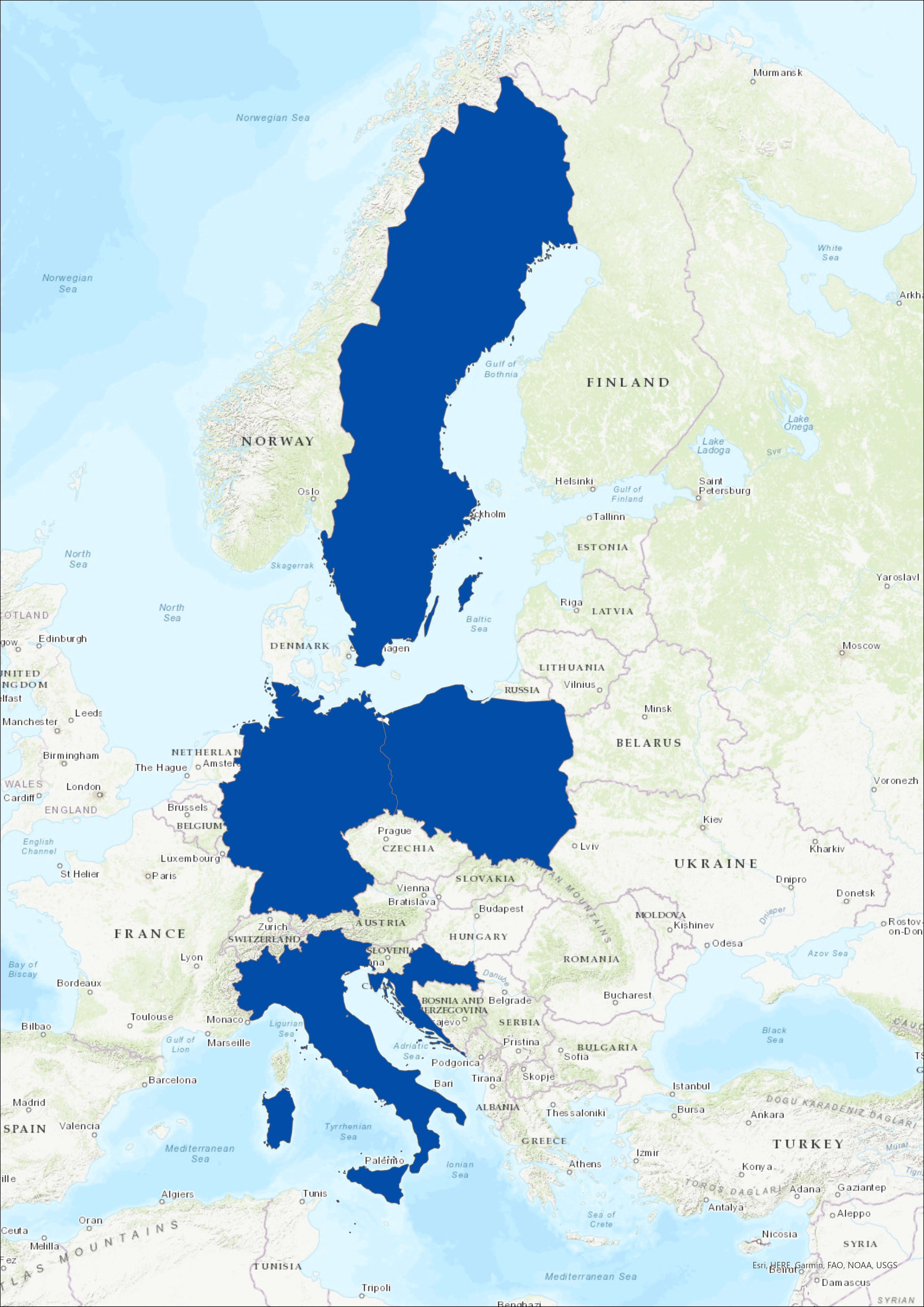
POLITECHNIKA GDANSKA
UL. GABRIELA NARUTOWICZA 11/12 , 80-233 GDANSK , PL
www.pg.edu.pl
SVEUCILISTE U ZAGREBU
Trg Republike Hrvatske 14
10000 Zagreb, Croatia
http://www.unizg.hr
BAUHAUS-UNIVERSITAET WEIMAR
Geschwister-Scholl-Straße 8
99423 Weimar, Germany
https://www.uni-weimar.de
Lund University
Lund, Sweden
www.lunduniversity.lu.se


EUROS@P PROJECT
|
Project Title |
European Road Safety Partnership – Network Wide Road Safety Assessment |
|
Project Acronym |
EusoSAP-NWRSA |
|
Web page |
|
|
Consortium leader |
Gdansk University of Technology (Poland) |
|
Partners |
University of Zagreb (Croatia) Bauhaus-Universität Weimar (Germany) Lund University (Sweden) University of Catania (Italy) |
|
Project Start Date |
2023-09-01 |
|
Project Total Duration |
36 months |
|
Project End Date |
2026-08-31 |
|
Programme funding Erasmus+ |
400000 |
Summary of project
The project European Road Safety Partnership—Network-wide Road Safety Assessment (EuroSAP-NWRSA), initiated by five European universities: Gdansk University of Technology, University of Zagreb, Bauhaus University of Weimar, Lund University, and University of Catania, focuses on improving road safety in Europe by developing the competence of road infrastructure managers. The modern world is faced with the dramatic consequences of road accidents, with one million fatalities per year worldwide. In Europe, more than 19,000 fatalities were reported in 2021.
The introduction of Directive 2008/96/EC on Road Infrastructure Safety Management (RSIM) was an important step, but the lack of casualty reduction prompted the European Parliament and the Council of the EU to introduce an amendment to Directive 2019/1936, broadening its scope and adding a new tool of the Network Wide Road Safety Assessment (NWRSA).
The main objectives of the EuroSAP- NWRSA project are for students to gain knowledge and improve the competence and skills of road authorities, auditors, and road safety inspectors, as well as lecturers and experts (teaching staff) in the area of NWRSA as part of RISM.
Achieving the project’s main objective will increase the possibilities of solving such a socially significant problem as road safety. The main aim will be achieved through the implementation of sub-objectives:
- Prepare the methodological basis and develop didactic and training materials for six courses, including competence certification.
- Building a knowledge base of stakeholders and professionals in RISM for European Union countries.
- The participants of the pilot training courses verified, evaluated and recommended the prepared didactic and training materials and methodologies.
- Disseminate information about the project and its results using digital tools.
To achieve all objectives, international cooperation within the project will be necessary to increase education quality, allow for knowledge exchange between partners, and implement and disseminate innovative solutions.
The project is divided into 5 work packages and 19 tasks:
- Project management and coordination.
- Road Infrastructure Safety Management methodology – Network Wide Road Safety Assessment.
- Theoretical and practical teaching materials related to Network Wide Road Safety Assessment.
- Pilot training with the evaluation of the prepared didactic-training materials and methodology.
- Dissemination of project.
The EuroS@P project targets the following groups:
- Students, researchers, and academic teachers at universities.
- Road authority staff at national, regional and local levels.
- Experts, specialists, and practitioners involved in RS activities, including staff who conduct training in various RS courses.
- All users of road infrastructure, as an indirect target group, for whom the risk of road accidents will ultimately be reduced by increasing the effectiveness and efficiency of RISM activities.
The project is a continuation of the 2020-2023 EuroS@P—European Road Safety Partnership project by the consortium Gdansk University of Technology, University of Zagreb, Bauhaus University of Weimar, European Institute of Road Assessment, and University of Catania. Erasmus+ financed the project.
